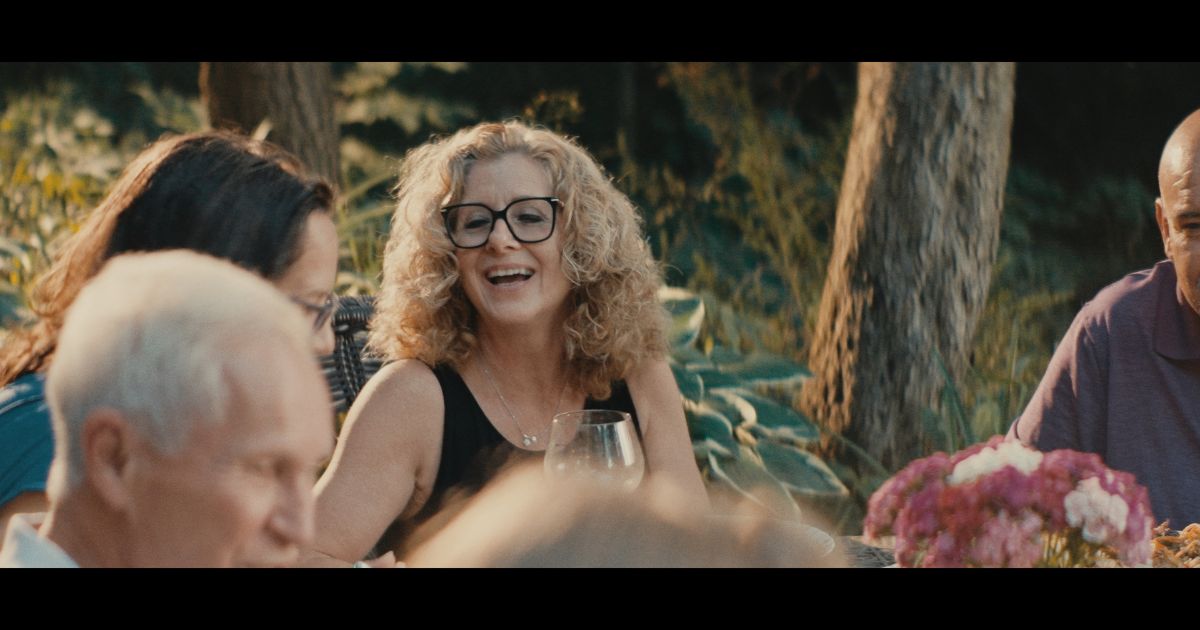For Cynthia Beretta, the cofounder of Beretta Farms, a leader in the organic meat industry for more than 20 years, this couldn’t be more true. And she wouldn’t change a thing.
Perhaps some of you have heard of the app called Farmville. In this game, players start their own animal farm from the ground up. As you build your farm, you decide what livestock to raise, what crops to grow, how many farmhands you need, etc., and you earn “points” to scale your business and deal with any obstacles and natural disasters that come your way. Little did Cynthia and Mike Beretta know they would be playing a real-life version of Farmville when they decided to start their organic cattle farming business nearly 31 years ago.

“Neither one of us comes from a family farming background,” Cynthia says during our video call in late March. Her broad smile and kind eyes speak almost before she does, and I immediately sense her positive energy through my screen.
As the eldest daughter of Italian immigrants (her husband of nearly 32 years, Mike, grew up in South America and came to Canada in his early 20s), Cynthia was raised by parents who cared about the quality of food they served in their home. “My mother was a flower child,” she says affectionately, adding they are just 20 years apart in age. “Not only did we have a big garden at home, but she also started a food co-op in our neighbourhood. She was into alternative food and medicine; we had a homeopathic doctor. This was the early 1980s when nobody was doing these things.” It’s not surprising, then, that Cynthia credits her mother for her awareness and passion for organics, though it’s a praise her mother does not accept. “I was born on the very first Earth Day—April 22, 1970—so my mother always said I was destined to be an Earth healer of some kind.”
As young newlyweds, Cynthia worked in a bank and Mike was still finishing school when they decided to buy a couple of pigs, kind of on a whim, but with the intention of raising them with kindness and feeding their family. “We named them Charlotte and Wilbur,” she says with a wry smile. “We never did that again because I cried the whole way to the abattoir.” Despite the emotional entry into the business of pig farming, they decided to continue. “So, we sell the meat from those two pigs to family and friends, and we kind of get this, ‘Wow!’ feeling. We did a good thing by doing it right for the animals and for our family, because we know where the meat came from.” But make no mistake—this wasn’t an “a-ha!” moment where Cynthia and Mike decided to make a business plan and pursue this, knowing they’d become wildly successful organic farmers. “I don’t know exactly what I would have called it at that point in time. We knew we wanted to farm and raise animals, and we wanted that to be the way we fed our future children—even though we didn’t have any yet,” Cynthia says. “We just wanted to eat healthy food. And this is before celebrity chefs. We just thought this is something we want to do because this is how I had been raised by my mom and, for us, it was kind of like a no-brainer that we want to have this for our kids, too.”
We saw real potential in this business of farming organically, and producing food that was from animals that were raised ethically and without hormones or antibiotics,”
Cynthia says.

They soon realized other families would want the same thing. And so, they slowly started a pig farm to share their meat with like-minded people. In the beginning, they sold to friends and family, but it wasn’t long before word got around. Mike was still in school but would work the farm and make deliveries. Cynthia worked full-time at the bank and spent all her free time with Mike doing chores, caring for the animals and keeping track of the orders. The business naturally grew, and, by their fourth year, they “scaled their company” by stocking meat in a freezer at Mike’s parents’ house. It’s important to remember, too, that this was around 1995, so there was no digital marketing, no social media to get people’s attention, no website to tell your story, no email to reach out to potential retailers. Still, if this were the Farmville app, they were successfully navigating the game and were slowly progressing from one level to the next. Which, as everyone suspects, meant a major obstacle was inevitably about to pop up. “In October 1995, we had a barn fire and lost everything overnight,” Cynthia says with sadness and residual disbelief in her voice. “I don’t just mean almost all of our livestock, which was beyond devastating, but our entire facility, too—all the buildings, our equipment, the grain, the hay and straw we stored in the barn. Gone.”
They were 26 years old, had a six-month-old baby (Thomas, their first) and were seriously underinsured. “Thankfully I was still working full-time as a financial planner,” Cynthia says. “So, we were very lucky to have some off-farm income. But Mike had none and was even still taking courses at university. We wondered if this was still for us. Maybe it was a sign? Even our parents, who love us dearly, said, ‘Guys, maybe you should just sell and come back and do something else.’”
Fortunately for all of us, Cynthia and Mike had formed some very strong friendships in the alternative agriculture community. “Some of our neighbours who were also organic farmers came over a few days after the fire. The barn was still burning,” Cynthia says, filling me in on some rather disturbing details about how long it takes for a smouldering barn fire and the resulting odors to completely pass. “One mentioned there was an active Mennonite community in our area and sometimes they help other people.” Recognizing an opportunity, albeit an unconventional one, Mike immediately got in the car and drove down the road to the Mennonite community. “When he got back, I was at the neighbours feeding the few animals that had survived; Thomas was strapped to me in a snuggly,” Cynthia recalls. (I imagine one would get bonus points for that in Farmville.) “I asked, ‘So, what happened?’ And Mike said, ‘He said he’d be in touch.’ And I said, ‘What does that mean? They don’t have phones, or even a car.’ But sure enough, a few days later, I was in the kitchen and happened to look out the window, and there was a horse and buggy coming down the laneway. It was one of the elders and his wife, and, I don’t know, three or four of their kids. I invited them in, and Mike joined us. They spoke to us to see if we were really in need or if we were taking advantage of a situation.” After about an hour and a half or so, the family left. “My hand on my heart, I can say that we couldn’t have done it without them.”
Cynthia thinks about a week passed before they received a letter of support in the mail. “We would not be here today if it wasn’t for their help,” she says.
Over the course of that winter, with the help of the Mennonite community, the destroyed barn was dismantled, and a new one was constructed—without modern tools, technology or even an architect or contractor. “We literally had barn raising like in the movie Witness,” Cynthia says. “They wouldn’t let us pay them. They said we had to pay it forward.” But even more importantly for Cynthia and Mike, this watershed moment became a part of their foundation, reinforcing how they wanted to move forward with their business.
So, life at Beretta Farm returned to normal, so to speak. By day, Cynthia continued work at the bank while Mike looked after the majority of the daily labour with the animals, and evenings and weekends were spent working the farm together. Their family grew when twins Leishan and Marcus arrived in 1997, and a few cattle joined the pigs in the barns as the young farmers decided to test their hands at beef farming. Just when things seem to be moving along rather nicely, another unanticipated hurdle reared its head. “It was other’s Day 1998,” Cynthia says, sounding uncharacteristically foreboding. “I’d gone to my parents’ near Tottenham, ON, the night before with our three kids, and Mike was going to follow the next day because he had some planting to do.” Cynthia goes on to explain they used Percheron horses to till their land (perhaps because of the Mennonite’s influence, I wondered). Of course, they had tractors, but Cynthia said on this day, Mike was driving the horses from an elevated seat atop a fourcart. (If you’re not familiar with this type of farm equipment, it’s basically like a rototiller with a chair, where one sits as one steers the horses.) “I had just gotten back from mass with my parents and the phone rang,” Cynthia says. “It was my girlfriend back home. I had just spoken to her the day before, so I thought it was odd that she was calling. She was really calm, and she said, ‘Hi Cynthia. Happy Mother’s Day. I’m here with Mike and we’re at the hospital.” Cynthia’s heart sank. Mike had been heading home on the fourcart and part of the metal grates hit the paved part of the laneway. The noise frightened the horses. “They took off for home, which is what horses do when they get spooked,” Cynthia says. “As they turned into our driveway, Mike realized that he was going to get thrown. Somehow he had the wherewithal to jump. By sheer luck, he landed in a culvert, where he lay face down and made himself as flat as possible. The only reason he’s alive is because his head fell in that culvert.”

A neighbour found Mike unconscious in the ditch (the horses were all okay), and he spent 10 days in intensive care. Of course, there is no sick leave when you are a farmer, so Cynthia and Mike once again had to rely on the kindness of their friends, family and community, who pitched in until Mike was well enough to get back to work. Despite the accident—or perhaps because of it?—more and more people were hearing about the Beretta brand, and business continued to grow. So much so that in October 1999, it was time to sell the current farm and move to a larger one in King City, ON. “We saw real potential in this business of farming organically, and producing food that was from animals that were raised ethically and without hormones or antibiotics,” she says. “We really had clarity on our vision because we had learned so much.”
At this point, technology was growing in all areas of business, including media. The internet was becoming a thing, and the Food Network had launched a few years earlier. People were becoming more knowledgeable about where their food was coming from and started some of the ramifications of chemicals used in the 1970s and 1990s were coming to light. Organic farming was becoming more than an outlier and Beretta Farm was at the forefront of that movement. Cynthia was now only working three days a week at the bank and became Beretta’s first salesperson. “I would literally knock on the doors of all the health-food stores in Toronto because this is before organic meat was sold in grocery stores,” she says. “We have pictures of the kids, around age three or four, helping to pack things with hair nets on. We bought our first refrigerated truck. We start doing deliveries to all these little stores across the Greater Toronto Area.”
Soon a new option came to town: Whole Foods Market. “It was 2002 and before Whole Foods even opened the doors of its first Canadian store in Hazelton Lanes in Toronto, I started calling their head office to find out who their meat buyer was. I can’t tell you how many messages I left for Jeff—I called that man so many times I will never forget this name! I kept leaving messages saying, ‘We really want to help. We want to be in your store.’ Finally, Jeff called me back. The rest, as they say, is history. Over the next 15 years or so, Beretta Farm would become Whole Foods largest Canadian supplier of organic meat products. They would eventually leave when the business model was changed (Amazon bought Whole Foods in 2017), but by then, Cynthia and Mike became leaders in the organic meat industry and had diversified their business by expanding into the European market, and entering the food-service industry. (Beretta supplies quality, organic beef to A&W, Harvey’s and Chipotle.) “Things were going great,” Cynthia says, referring to both business and their family. “Thomas was at school in the US playing D1 hockey, Leishan was studying equine sciences in Alberta and Marcus was at Humber College taking photography. They would come home and spend summers with us. They worked in the warehouse. They worked online. They worked in the catering kitchen. They’ve done it all and have kind of seen a piece of every part of the business.” There was never any official talk about succession. “They grew up in the business and saw our successes and hardships,” Cynthia says. “They saw what we went through and how we celebrated our wins and worked through the challenges. But did we ever anticipate them all to be with us today? Honestly, I don’t think I ever did. We encouraged them to get off-farm jobs to see what it was like to work for other people, to work in other industries, to try something completely different if they wanted to.”

The next obstacle the family faced is one we all faced right along with them: COVID-19. “It’s February 2020. First, since Thomas is at school in the States, our focus was just getting him home before they closed the borders,” Cynthia recalls. “As food producers, we were considered an essential service, so we stayed open, but our catering kitchen was put on hold, our European business shut down, and no one was exactly sure what was going to happen to the Canadian grocery stores. It was such an unknown time. Since the kids were home, they started to work for us. They knew the business because of the summers they had spent working. So, Thomas started to help us with our online business—I think it had quadrupled overnight because people were stockpiling food. Marcus’ photography job was put on hold, as it wasn’t an essential business, so he started doing deliveries for us. And Leishan was handling marketing. When things subsided, everyone decided to stay. Thomas now works for us full-time in western Canada, Leishan works full-time in our cattle division and Marcus is now overseeing our marketing and online business.”
With everyone working together, but not all in the same place, Cynthia admits she was mindful of prioritizing family over business. “We have weekly family calls,” she says. “We celebrate the great things and talk about the challenging things. Work may creep into the conversations, but it doesn’t monopolize them. And it’s so important to stop and celebrate. That’s one of the reasons why Sunday dinner is a big thing for me: If they’re in town, they come home. I always say food is my love language. So, if I’m cooking for you, it means I love you.”
Looks like there is a new player coming to Farmville: By the time you read this, Cynthia and Mike will have welcomed their first grandchild. Time to celebrate, indeed.
Click here to see how the Mennonite community helped Beretta Farms rebuild their barn and their business.
Header photo credit @daniellematar
Having had the privilege of being at the helm of numerous national magazines, including Chatelaine and Today's Parent, Karine is passionate about content and building strong communities. Her 30+years working in the magazine industry in Canada and the U.S. have allowed her to develop an editorial vision that focuses on exceptional story-telling, dynamic media packages, successful brand partnerships and robust digital strategies, all with the audience's wants and needs top of mind. Karine enjoys collaborating with her team, clients and members of the community, so please do not hesitate to reach out to her.













